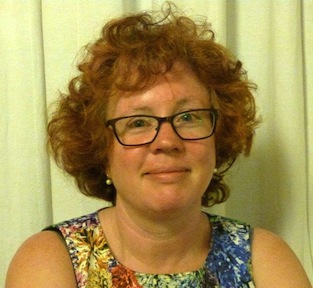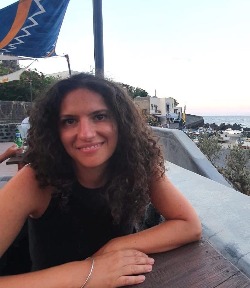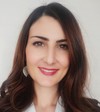Formazione e ricerca
Attività Formative del Corso di Dottorato - 2023/2024
Rhythm, meter, and syncopation: A linguistic perspective
Crediti: 1
Lingua di erogazione: English
Docente: Gaetano Fiorin (Università di Trieste)
Introduzione ai processi di elaborazione linguistica. Elaborazione linguistica delle parole tabù
Crediti: 1
Lingua di erogazione: Italiano
Docente: Simone Sulpizio (Università di Milano-Bicocca)
Exploring Worldwide Morphosyntax
Crediti: 1
Lingua di erogazione: English
Docente: Neele Harlos (Philipps-Universität Marburg)
Discovering language through vision: Eye-tracking for linguistic research
Crediti: 1
Lingua di erogazione: English
Docente: Marta Tagliani, Michela Redolfi
Clinical and Experimental Neurolinguistics Workshop
Crediti: 1
Lingua di erogazione: English
Docente: Simona Mancini (Basque Center on Cognition, Brain and Language, BCBL)
Speaker categorisation in empirical linguistics
Crediti: 1,5
Lingua di erogazione: English
Docente: Gabriele Pallotti (Università di Modena e Reggio Emilia), Judith Purkarthofer (Universität Duisburg-Essen)
Syntactic microvariation
Crediti: 1
Lingua di erogazione: English
Docente: Alessandra Tomaselli, Cecilia Poletto (Università di Padova, Goethe-Universität Frankfurt)
Language Policy
Crediti: 1,5
Lingua di erogazione: English
Docente: Inna Kabanen (University of Helsinki), Daniele Artoni
Genus, Sexus und Gender am Beispiel des Deutschen, Russischen und Armenischen
Crediti: 1
Lingua di erogazione: German
Docente: Gayane Savoyan
The German Language in America: Bilingualism and Language Contact
Crediti: 1
Lingua di erogazione: English
Docente: Mark L. Louden (The University of Wisconsin-Madison)
Quantitative Methods in Linguistics
Crediti: 3
Lingua di erogazione: English
Docente: Alessandro Vietti (Free University of Bozen-Bolzano)
Origine e sviluppo storico della lingua danese
Crediti: 1
Lingua di erogazione: Italiano
Docente: Luca Panieri (Università IULM Milano)
Natural Language Processing for Non-standard Language and Dialects: Challenges and Current Approaches
Crediti: 0,5
Lingua di erogazione: Inglese
Docente: Barbara Plank (LMU München)
Insegnare e imparare il tedesco tra tardo Medioevo e primo Evo moderno
Crediti: 0,5
Lingua di erogazione: Italiano
Docente: Marialuisa Caparrini (Università degli Studi di Ferrara)
Data Curation & Visualization in R
Crediti: 2
Lingua di erogazione: English
Docente: Massimiliano Canzi (University of Konstanz)
Metaphors and Vaccination
Crediti: 0,5
Lingua di erogazione: English
Docente: Elena Semino (Lancaster University)
Language Comprehension in Dyslexia: Sentence Processing, Linguistic Prediction, and Educational Issues
Crediti: 1
Lingua di erogazione: English
Docente: Paul Engelhardt (University of East Anglia)
Phonology
Crediti: 2,5
Lingua di erogazione: English
Docente: Birgit Alber (Freie Universität Bozen), Eirini Apostolopoulou (University of Thessaloniki)
Introduction to Conversation Analysis
Crediti: 2,5
Lingua di erogazione: English, Italian
Docente: Daniela Veronesi (Freie Universität Bozen), Elwys De Stefani (Universität Heidelberg)
Introduction to language documentation
Crediti: 0,5
Lingua di erogazione: English
Docente: Peter Austin (SOAS University of London)
Computational Linguistics
Crediti: 0,5
Lingua di erogazione: English
Discovering language through vision: Eye-tracking for linguistic research (2023/2024)
Docenti
Crediti
1
Lingua di erogazione
English
Frequenza alle lezioni
Scelta Libera
Sede
VERONA
Programma
Eye-tracking is to-date one of the most powerful tools to investigate language acquisition and processing in real-time. Indeed, the development of this high-precision technology has allowed researchers to explore a large body of linguistic phenomena through eye-movement recording and analysis. Linguistic research with eye-tracking is mainly conducted exploiting two paradigms: the visual-world paradigm and text-reading.
Visual-world tasks allow for research with a large number of populations, including children and language-impaired participants.
This paradigm requires participants to look at a screen displaying pictures while listening to linguistic stimuli.
By contrast, reading tasks specifically focus on the reading process and are usually more demanding, especially for atypical populations, such as dyslexics or poor readers.
This seminar will be organized in two parts. During the first, we will overview how vision and language were found to be closely related, retracing the evolution of the eye-tracking methodology, and we will present the results from a series of experiments tackling different aspects of language processing (i.e., sentential negation, word and nonword reading, implicit learning, acquisition of adjectives, retrieval of phonological and semantic cues in bilingual sentence processing) in typical and atypical populations.
The second part will be more practical and will be held in the LaTeC laboratory where a mock eye-tracking experiment will be performed by participants.
Quando e Dove
Univr, Aula Co-Working, LaTeX laboraory (afternoon)
Referente: Chiara Melloni (chiara.melloni@univr.it)
Valutazione
In class
Lezioni Programmate
| Quando | Aula | Docente | Argomenti |
|---|---|---|---|
|
martedì 28 novembre 2023 10:00 - 12:00 Durata: 2.00 |
Palazzo di Lingue - Co-Working [04 - M] | Discovering language through vision: Eye-tracking for linguistic research | |
|
martedì 28 novembre 2023 10:00 - 12:00 Durata: 2.00 |
Palazzo di Lingue - Co-Working [04 - M] Aula virtuale - Lezione online - test | Michela Redolfi | Discovering language through vision: Eye-tracking for linguistic research |
|
martedì 28 novembre 2023 14:00 - 16:00 Durata: 2.00 |
Palazzo di Lingue - Co-Working [04 - M] | Marta Tagliani | Discovering language through vision: Eye-tracking for linguistic research |
|
martedì 28 novembre 2023 14:00 - 16:00 Durata: 2.00 |
Palazzo di Lingue - Co-Working [04 - M] | Discovering language through vision: Eye-tracking for linguistic research |
Attività Formative della Scuola di Dottorato - 2023/2024
Please note: Additional information will be added during the year. Currently missing information is labelled as “TBD” (i.e. To Be Determined).
PhD students must obtain a specified number of CFUs each year by attending teaching activities offered by the PhD School.
First and second year students must obtain 8 CFUs. Teaching activities ex DM 226/2021 provide 5 CFUs; free choice activities provide 3 CFUs.
Third year students must obtain 4 CFUs. Teaching activities ex DM 226/2021 provide 2 CFUs; free choice activities provide 2 CFUs.
Registering for the courses is not required unless explicitly indicated; please consult the course information to verify whether registration is required or not. When registration is actually required, no confirmation e-mail will be sent after signing up.
Teaching Activities ex DM 226/2021: Linguistic Activities
INFORMATION: ENGLISH FOR ACADEMIC PRESENTATION SKILLS [Arts and Humanities]
Crediti: 2,5
Lingua di erogazione: Inglese
INFORMATION: ENGLISH FOR ACADEMIC PRESENTATION SKILLS [Law and Economics]
Crediti: 2,5
Lingua di erogazione: Inglese
INFORMATION: ENGLISH FOR ACADEMIC PRESENTATION SKILLS [Life and Health Sciences - 1 st Session]
Crediti: 2,5
Lingua di erogazione: Inglese
INFORMATION: ENGLISH FOR ACADEMIC PRESENTATION SKILLS [Life and Health Sciences - 2 nd Session]
Crediti: 2,5
Lingua di erogazione: Inglese
INFORMATION: ENGLISH FOR ACADEMIC PRESENTATION SKILLS [Natural Sci. and Engineering-1st Session]
Crediti: 2,5
Lingua di erogazione: Inglese
INFORMATION: ENGLISH FOR ACADEMIC PRESENTATION SKILLS [Natural Sci. and Engineering-2nd Session]
Crediti: 2,5
Lingua di erogazione: Inglese
INFORMATION: ENGLISH FOR ACADEMIC WRITING SKILLS [Arts and Humanities]
Crediti: 2,5
Lingua di erogazione: Inglese
INFORMATION: ENGLISH FOR ACADEMIC WRITING SKILLS [Law and Economics]
Crediti: 2,5
Lingua di erogazione: Inglese
INFORMATION: ENGLISH FOR ACADEMIC WRITING SKILLS [Life and Health Sciences - 1 st Session]
Crediti: 2,5
Lingua di erogazione: Inglese
INFORMATION: ENGLISH FOR ACADEMIC WRITING SKILLS [Life and Health Sciences - 2 nd Session]
Crediti: 2,5
Lingua di erogazione: Inglese
INFORMATION: ENGLISH FOR ACADEMIC WRITING SKILLS [Natural Sci. and Engineering-1st Session]
Crediti: 2,5
Lingua di erogazione: Inglese
INFORMATION: ENGLISH FOR ACADEMIC WRITING SKILLS [Natural Sci. and Engineering-2nd Session]
Crediti: 2,5
Lingua di erogazione: Inglese
Teaching Activities ex DM 226/2021: Research management and Enhancement
SEMINARIO AVANZATO SULLE RISORSE BIBLIOTECARIE PER LA RICERCA [Arts and Humanities]
Crediti: 2,5
Lingua di erogazione: Italiano
Docente: Donatella Boni
SEMINARIO AVANZATO SULLE RISORSE BIBLIOTECARIE PER LA RICERCA [Law and Economics]
Crediti: 2,5
Lingua di erogazione: Italiano
Docente: Luisella Zocca
SEMINARIO AVANZATO SULLE RISORSE BIBLIOTECARIE PER LA RICERCA [Scientific Area]
Crediti: 2,5
Lingua di erogazione: Italiano
Docente: Elena Scanferla
Teaching Activities ex DM 226/2021: Statistics and Computer Sciences
INTRODUCTION TO PROBABILITY (MODULE I)
Crediti: 1
Lingua di erogazione: Inglese
Docente: Marco Minozzo
INTRODUCTION TO PROBABILITY (MODULE II)
Crediti: 1
Lingua di erogazione: Inglese
Docente: Marco Minozzo
BASIC LEVEL STATISTICS - RECOMMENDED FOR HUMAN SCIENCES
Crediti: 2,5
Lingua di erogazione: Inglese
INTRODUCTION TO STATISTICAL INFERENCE
Crediti: 1
Lingua di erogazione: Inglese
VALIDITY AND RELIABILITY OF MEASUREMENTS AND DIAGNOSTIC TESTS
Crediti: 0,5
Lingua di erogazione: English
Docente: Alessandro Marcon
BASIC LEVEL STATISTICS
Crediti: 2,5
Lingua di erogazione: Italiano
Statistical analysis with R - module I
Crediti: 1
Lingua di erogazione: Italiano
Docente: Erica Secchettin
Generalized linear models: logistic regression, loglinear model, Poisson model
Crediti: 2
Lingua di erogazione: English
Docente: Lucia Cazzoletti
STUDY DESIGN IN OBSERVATIONAL AND EXPERIMENTAL RESEARCH
Crediti: 1,5
Lingua di erogazione: English
Docente: Alessandro Marcon
DETERMINATION OF SAMPLE SIZE TO ACHIEVE A PREDEFINED PRECISION OR POWER
Crediti: 1
Lingua di erogazione: English
Docente: Giuseppe Verlato
INTRODUCTION TO META-ANALYSIS, FOCUSED ON MEDICAL RESEARCH (LITERATURE REVIEW, DATA COLLECTION, DATABASE CONSTRUCTION)
Crediti: 1
Lingua di erogazione: English
Docente: Giuseppe Verlato
APPLICATION OF META-ANALYSIS TO THE EPIDEMIOLOGICAL OR MEDICAL FIELD
Crediti: 1
Lingua di erogazione: Inglese
Docente: Giuseppe Verlato
Survival analysis: log-rank test, Kaplan-Meier survival curves, Cox regression model
Crediti: 1,5
Lingua di erogazione: Inglese - English
Docente: Simone Accordini
INTERMEDIATE STATISTICS [Recommended for Human Sciences]
Crediti: 2,5
Lingua di erogazione: Inglese
INTERMEDIATE STATISTICS [Tutti i corsi di studio]
Crediti: 2,5
Lingua di erogazione: Inglese
Statistical analysis with R - module II
Crediti: 2
Lingua di erogazione: Italiano
Docente: Erica Secchettin
Teaching Activities: Free choice
PROTECTING PSYCHOLOGICAL WELL-BEING IN THE PHD PROGRAM: WHAT DO WE NEED TO CONSIDER FOR BEING A GOOD SCIENTIST: BEST PRACTICE AND THE ETHICS OF SCIENCE
Crediti: 1
Lingua di erogazione: inglese
Docente: Paola Cesari
QUANDO LA RICERCA SI FA ETICA (PERCORSO ORGANIZZATO E FINANZIATO DAL TEACHING AND LEARNING CENTER DI UNIVR)
Crediti: 2
Lingua di erogazione: Italiano
Docente: Roberta Silva
IMPARA IL MARKETING DIGITALE
Crediti: 1,5
Lingua di erogazione: English
LA POESIA ITALIANA ALL’ESTERO
Crediti: 1
Lingua di erogazione: Italiano
Docente: Massimo Natale
COSTRUISCI IL TUO BUSINESS MODEL CANVAS
Crediti: 1,5
Lingua di erogazione: English
APPROCCI E METODOLOGIE PARTECIPATIVE NELLA RICERCA CON GLI ATTORI DEL TERRITORIO
Crediti: 1,5
Lingua di erogazione: Italiano
Docente: Cristiana Zara
DOING INTERVIEWS IN QUALITATIVE RESEARCH
Crediti: 1,5
Lingua di erogazione: English
Docente: Chiara Sità
LA COMUNICAZIONE UMANISTICA: OPPORTUNITA' E RISCHI
Crediti: 1
Lingua di erogazione: Italiano
DIFFERENTIAL DIAGNOSIS OF DEMYELINATING DISEASES OF THE CENTRAL NERVOUS SYSTEM
Crediti: 2
Lingua di erogazione: English
Docente: Alberto Gajofatto
IL SONNO E I SUOI DISTURBI: FOCUS SULLE PARASONNIE E I DISTURBI DEL MOVIMENTO IN SONNO
Crediti: 1
Lingua di erogazione: English
Docente: Elena Antelmi
IMAGING TECHNIQUES FOR BODY COMPOSITION ANALYSIS
Crediti: 1
Lingua di erogazione: English
Docente: Carlo Zancanaro
OPEN SCIENCE: THE MIGHTY STICK AGAINST "BAD" SCIENCE
Crediti: 2
Lingua di erogazione: English
Docente: Alberto Scandola
THE EMPIRICAL PHENOMENOLOGICAL METHOD (EPM): THEORETICAL FOUNDATION AND EMPIRICAL APPLICATION IN EDUCATIONAL AND HEALTHCARE FIELDS
Crediti: 2
Lingua di erogazione: English
THE PATHWAY OF OXYGEN: CAUSE OF HYPOXEMIA
Crediti: 1
Lingua di erogazione: English
Docente: Carlo Capelli
Docenti
 michela.redolfi@univr.it
michela.redolfi@univr.it
 marta.tagliani@univr.it
marta.tagliani@univr.it
Dottorandi
Non è presente alcuna persona. 40° Ciclo non iniziato.
Loading...
Linee guida percorso formativo
Di seguito i file che contengono le Linee guida per il percorso formativo e il regolamento per l'acquisizione dei crediti formativi (CFU) per l'Anno Accademico 2023/2024.
Documenti
| Titolo | Info File |
|---|---|
|
|
pdf, it, 118 KB, 12/12/23 |
|
|
pdf, it, 89 KB, 12/12/23 |
|
|
pdf, it, 434 KB, 12/12/23 |
|
|
pdf, it, 115 KB, 12/12/23 |


 +39 045802 8465
+39 045802 8465










